Key Strategies for Securing a $500,000 Small Business Loan
Lets Get Started
For small business owners, the quest for substantial funding can be daunting. Especially when trying to understand loan options for a $500,000 business loan. How do you secure it? Are there short-term loan options, or long term? Are new businesses able to get that much? Is good credit required? Are there other financing options available? What is the application process? We’ll try to help answer these questions and more.
Assessing Your Financial Health: Income Requirements for a 500K Business Loan
When considering a loan of this magnitude, lenders typically look at a business’s income as a primary indicator of its ability to repay the loan, as well as their credit history. While there’s no universal benchmark, a business should have a robust annual revenue stream, often exceeding the loan amount sought, to reassure lenders of its repayment capacity. High income, coupled with a healthy cash flow, positions borrowers favorably in the eyes of financial institutions.
Enhancing Your Loan Approval Odds
Perfecting the Business Plan
Crafting a compelling business plan is paramount. This document should illuminate your business’s operational blueprint, growth potential, and strategic financial planning. It must convince lenders that your venture isn’t just a gamble but a calculated risk with promising returns.
Bolstering Creditworthiness
Credit scores are the yardsticks of reliability in the lending world. A good personal credit score, along with a solid business credit score, can vastly improve your chances of loan approval. Make sure your credit reports are free from errors and reflect a history of timely payments and prudent credit utilization.
Solidifying Cash Flow Statements
Cash is king, especially when it comes to loans. Lenders will meticulously scrutinize your cash flow statements. Proving that your business generates consistent and sufficient cash flow to cover monthly payments is critical. This financial metric reassures lenders of your ability to pay interest and principal amounts punctually.
Realistic Loan Expectations for Small Businesses
The loan amount you can realistically secure hinges on numerous factors, including your business’s financial health, credit scores, and the type of loan sought. Startups might face an uphill battle securing large term loans without a substantial track record, but established businesses with strong financials and credit histories could find lenders more accommodating.
The Need for Speed: Fast-Tracking Your Business Loan
The fastest way to get a business loan could be through online lenders. These lenders typically have a streamlined application process with minimal paperwork and faster underwriting procedures. However, the trade-off might be higher interest rates compared to traditional bank loans.
Bad credit?
If you’re an aspiring entrepreneur with less than perfect credit, securing funding could involve looking alternative financing methods such as merchant cash advances (MCAs). Though not a loan, an MCA provides a lump sum in exchange for a share of future revenue. And just like a loan, MCAs can fund higher sums. The LCF Group can fund up to $2M.
Decoding Business Loan Requirements
Lenders usually require a plethora of documents during the application process, including but not limited to:
Detailed business plans
Financial statements (profit and loss, cash flow)
Tax returns
Bank statements
Proof of collateral
Legal documents (licenses, franchise agreements, lease agreements)
A detailed outline of how the loan will be used
Meeting these requirements is the first step in a successful loan application.
Crafting a Winning Strategy for a 500K Business Loan
Selecting the Right Type of Loan
Term loans, SBA loans, commercial real estate loans, and equipment financing, micro loans, working capital loans, and invoice factoring are just some of the options available to business owners. Selecting the right type of loan for your business needs is crucial. For many, an SBA 7(a) loan program can be attractive due to lower interest rates and longer repayment terms.
Understanding the Value of Merchant Cash Advances
For small business owners, merchant cash advances offer a viable alternative to loans. They provide upfront capital quickly (as little as 24 hours) and require less stringent credit checks (some even have a minimum credit score of sub-500). This can be especially beneficial for businesses with less than perfect credit. To qualify, small business owners will need 3-4 months of business bank account statements.
Building Relationships with Lenders
Establishing a good relationship with a credit union or a traditional bank can lead to more favorable loan terms. The more confidence lenders have in your business, the more likely they are to offer larger loans with lower interest rates.
Weighing the Pros and Cons of Business Loans
Advantages of Private Loans and MCAs
Private loans from non-bank financial institutions and cash advances from MCAs providers can offer quicker access to funds and more flexible repayment terms*. They often cater to borrowers who may not qualify for bank loans due to bad credit or lack of collateral. Plus, you won’t need a down payment.
The Flip Side: Disadvantages of Loans
Business loans come with inherent risks, such as:
Debt Overhang: The obligation of monthly payments can weigh heavily on a business’s cash flow.
Interest Accumulation: Borrowers inevitably pay interest, which can add up significantly over time.
Collateral Risk: Some loans require personal guarantees or collateral, putting personal assets at stake.
Top Strategies to Secure a Half-Million Dollar Boost
1. Demonstrate Financial Responsibility
Maintain impeccable financial records and demonstrate a history of financial responsibility. A strong business credit score and a good personal credit score are critical.
2. Tailor Your Application
Customize your loan application to meet the lender’s requirements. Highlight the strengths of your business, and address potential concerns proactively.
3. Negotiate the Best Terms
Be prepared to negotiate on loan terms. This could mean better repayment schedules, lower interest rates, or reduced origination fees.
Navigating the Business Financing Maze
Assessing Loan Products and Lending Options
When seeking a $500,000 business loan, the marketplace is diverse. Traditional lenders, credit unions, and online funders offer a spectrum of loan products. Understanding the nuances of each, from annual percentage rates (APRs) to repayment terms, is critical for choosing the best business loan or alternative financing option for your situation.
Planning for Application and Underwriting
Anticipate what’s required in the business loan application process. Be ready with all required documents, including business tax returns, financial statements, and a well-articulated business plan detailing the use of funds.
Knowing Your Eligibility and Qualifying Criteria
Your eligibility for a business loan will be evaluated on many fronts: creditworthiness, business revenue, operational history, and the type of business. Understanding these qualifying criteria can help you address any shortcomings before applying.
In summary, securing a $500,000 business loan is no small feat, but it’s far from impossible. It requires thorough preparation, a strong financial foundation, and a strategic approach to selecting and applying for the loan. By optimizing your financial health, perfecting your application, and choosing the right type of financing—be it a traditional loan or a merchant cash advance—you can significantly boost your chances of obtaining the capital your business needs to thrive.





